We have talked about globalization the last twenty years. In the beginning we didn’t really know what it meant but we have now seen the globalization effects the last decade, especially in areas like movement of people and goods. There are many examples. Global crises that have impacted all of us. However there are also other macro-trends that creates new challenges as well as opportunities for the world. One of the strongest trends is the change of the global supply chain. First we had the security impact and now we see the change in trade patterns related to chane of production strategies.
International trade has more and more transformed into a complicated global value chain. Still, we hve only seen a pre-face of what is about to happen.
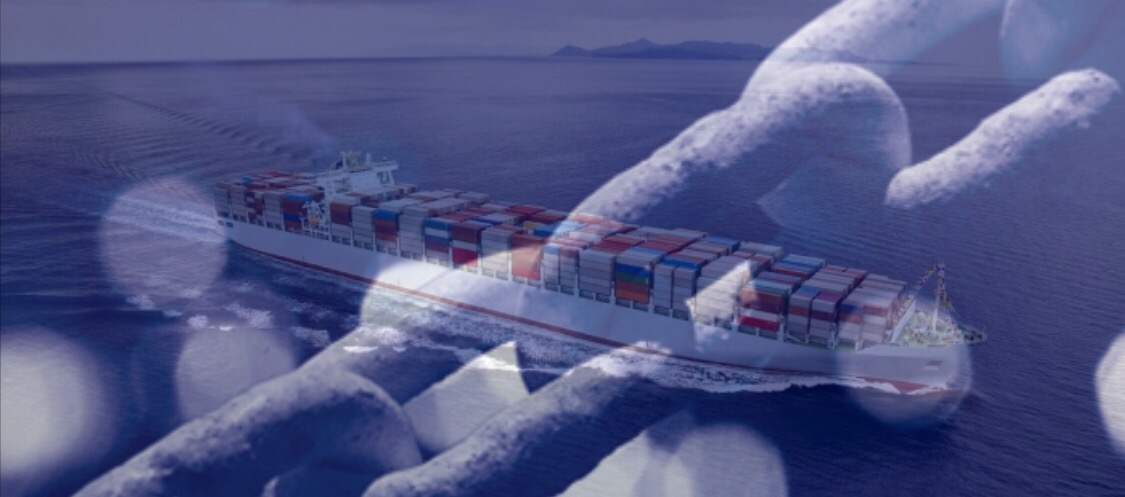
At first production was moved to low cost production countries with low labour costs. This meant that transport and logistics became more important.
Since then many of the countries involved as recievers of new production in the first wave of outsourcing, primarily in Asia, run into nearby competition with countries with even lower costs. Production moved again.
Today production is everywhere. It has moved to wherever the components can be produced with the right level of quality as cost efficent as possible.
A few years ago globalization made the landscape of production shift once again.
We are now also starting to see that some more advanced components have stayed in – or even moved back to – its original or primary production places, which again created new logistic challenges.
This change of the value chain into a more global arena was initially primarily related to high-end technical products like e.g. airplanes, computers, trucks and cars.
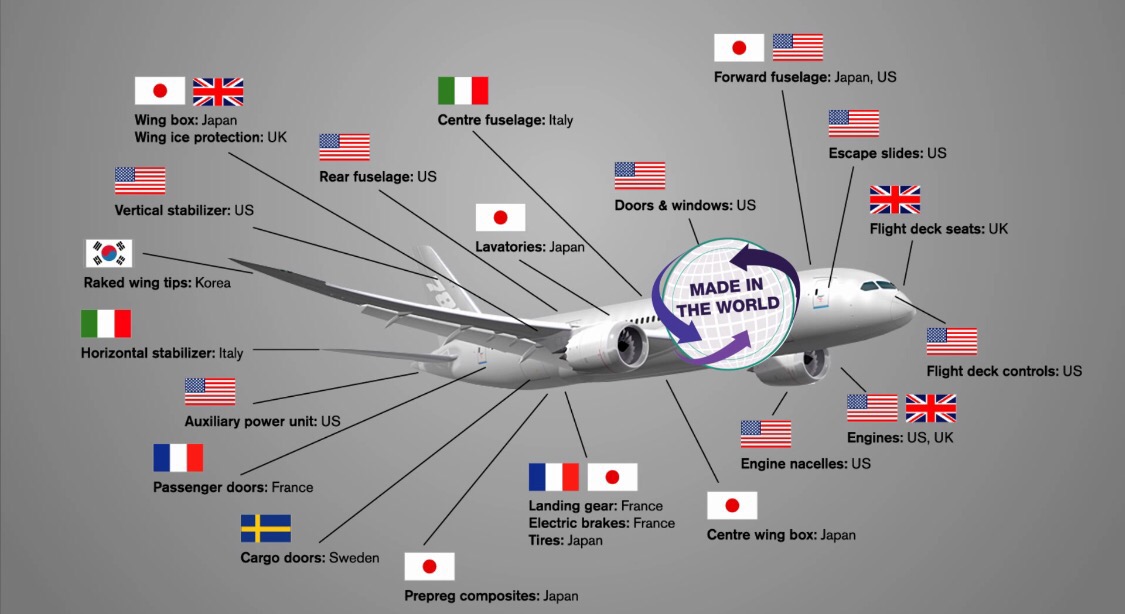
These products are also today produced within even complicated value chains than before. The new thing is that it isn’t only high-tech technical products that follow this trend anymore.
We now see more and more component based items follow the same pattern of development. This is valid for the food industry, pharmaceutical and medical products and many more sectors.
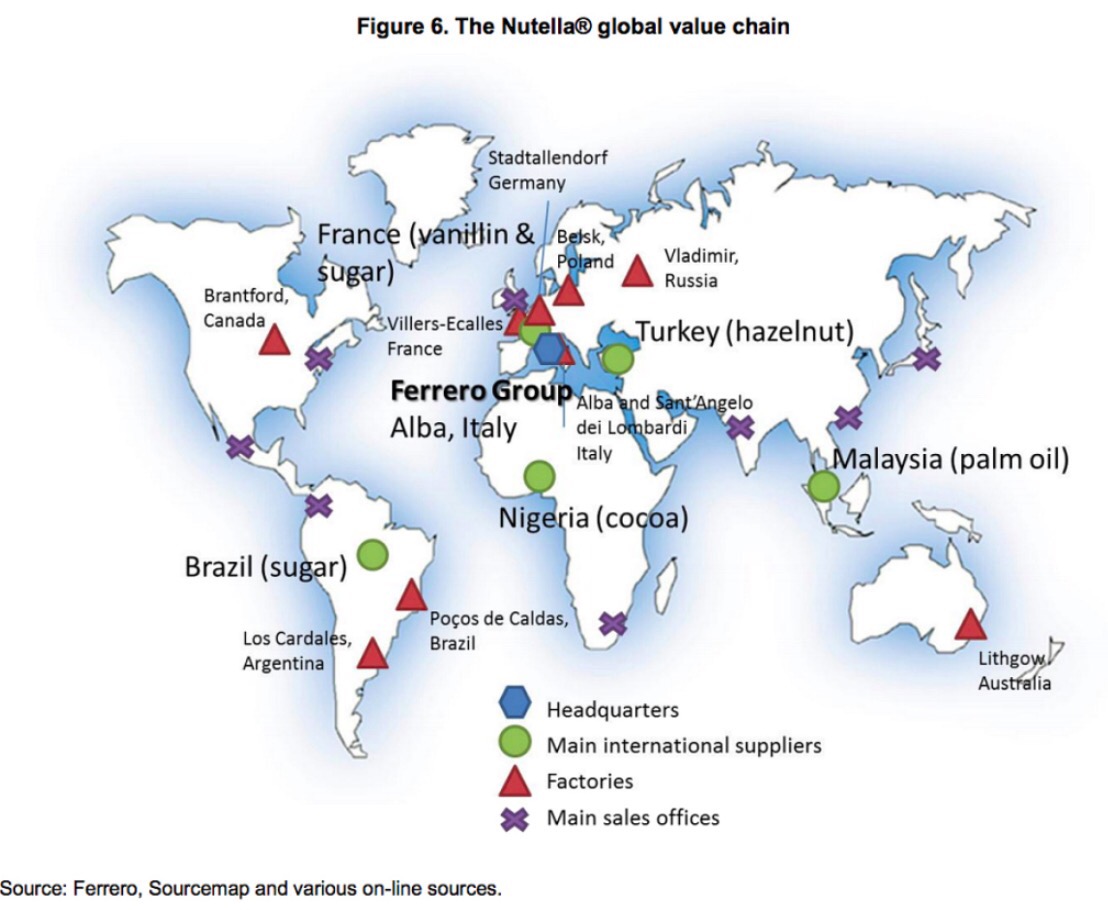
The value chain carusel has started and there is no turning back. Just get aboard!
Over the last years the global value chain development has increased enormously and there are today a wide range of products that during a production cycle travels the world several times before finally being assembled and distributed to its final consumer markets.
There are many scientific and academic studies done on this topic. As examples the World Trade Organization and Fung Institute has produced an interesting report about global value chains, ‘Global Value Chains in a Changing World’.you find a copy to the report here:
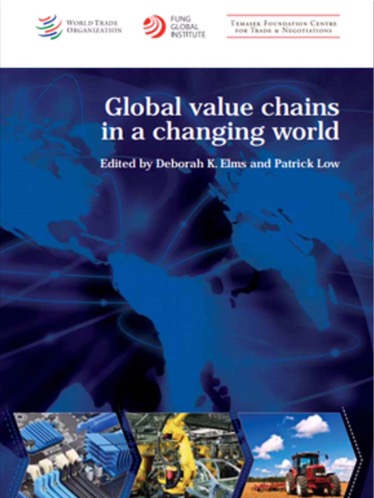
Also the Swedish National Board of Trade has produced several reports on this topic. You can find a copy to one of the report here: National Board of Trade Report
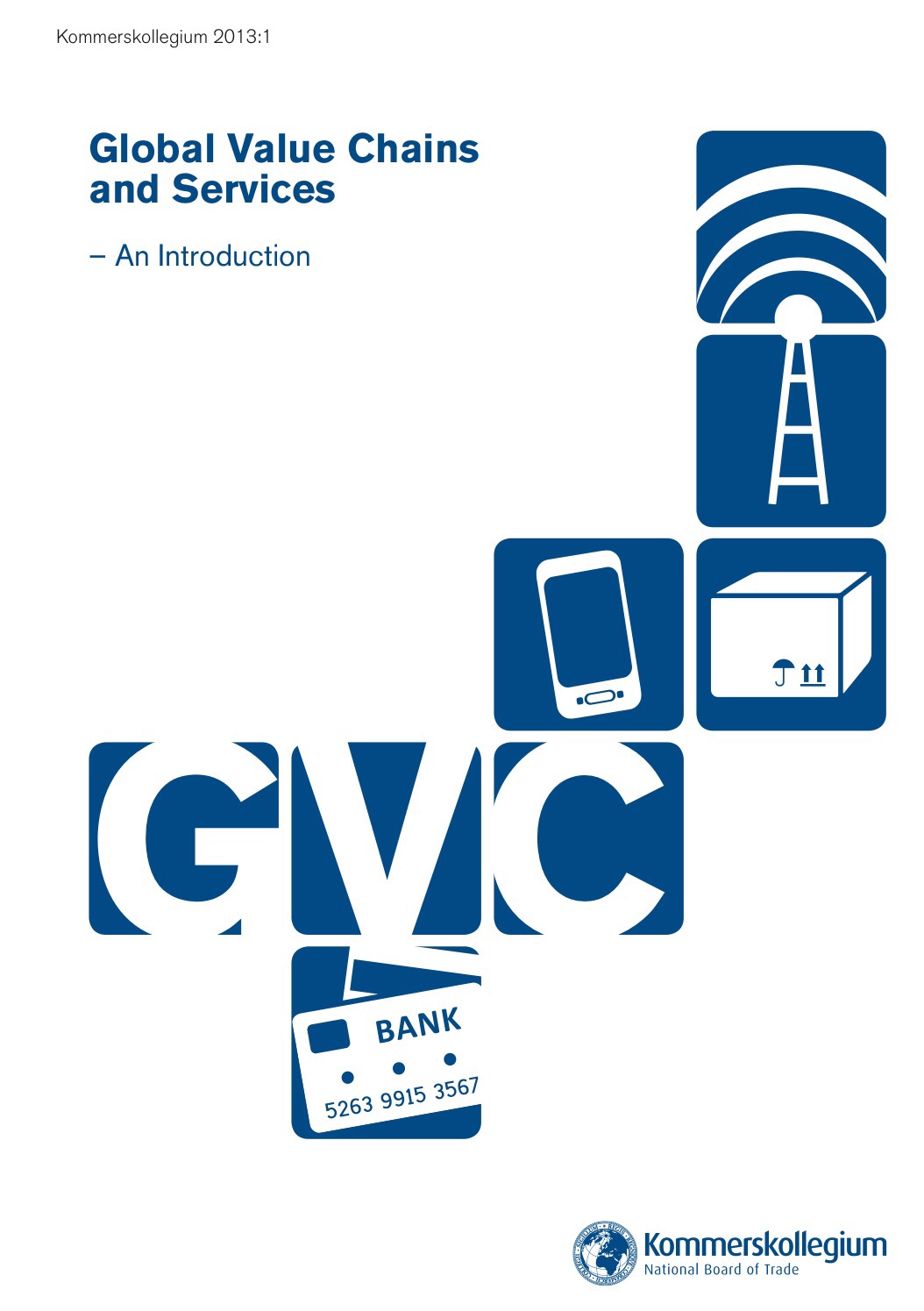
We also see new national industry strategies where countries are specializing on specific component based product lines rather than end-consumer products. It is simply better to be good and competitive at something than being bad at everything. Today politics is all about creating new jobs. The trend of less advanced products and services moving into global value chains plays a part of this as well. The better the logistic system is, more and more products can be produced in this way.
Thus there are many reasons to believe that this is just the beginning of a huge change of the entire trade environment.
This change will create enormous challenges for and demands on the entire supply chain and for all trading nations.
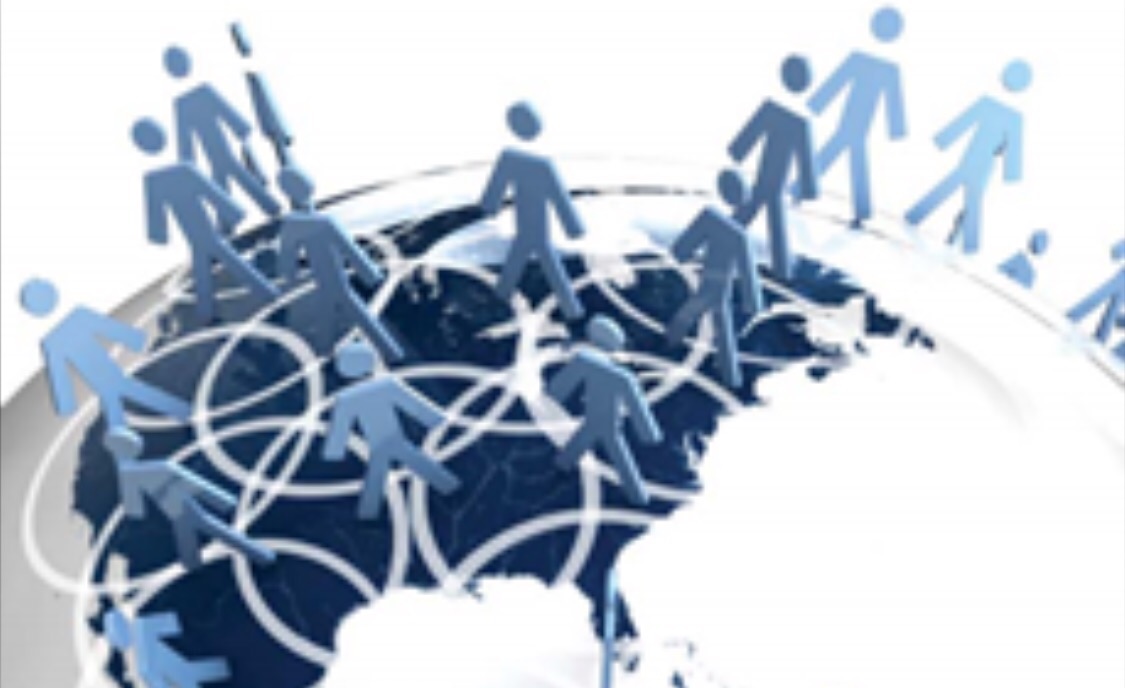
The need for international standards and best practices will increase over time.
In addition we can see that the links between movement of people and golds are getting stronger. When the value chains chabge, people related to the multinational companies involved travel more. The business travel increases, which creates challenges for people movement, VISA systems, immigration. This in a time when we see huge international challenges related to people movement all around the world.
So what does the development of new trade patterns and global value chains mean for Customs and Border Agencies ? It means everything.
This is an entirely new type of world we are starting to see, where the demands for predictability and speed are totally different and much higher than before.
Also service providers acting in the global supply chain will have to re-think their service portfolios, service levels and even business models to survive in the future.
Modern concepts like e.g AEO, SW, OSS, Big Data Cloud solutions and data superhighways will be mandatory. The WTO TFA is a platform for this new world.
We will have to ensure that these concepts will not become new non-tariff barriers for emerging economies, but instead bridges to a more inclusive world trade.
In addition international institutions need to take lead on this development and they need to do it now. Not tomorrow or in the future, but right now. We need a new paradigm for international trade and the movement of people/goods – and we need it now.
The Swedish Prime Minister Stefan Löfven has the last days visited Serbia.
During the vidit PM Löfven met Serbian Prime Minister Alexandar Vucic. Löfven promised his and Swedens’ support for Serbias wish to join the European Union.
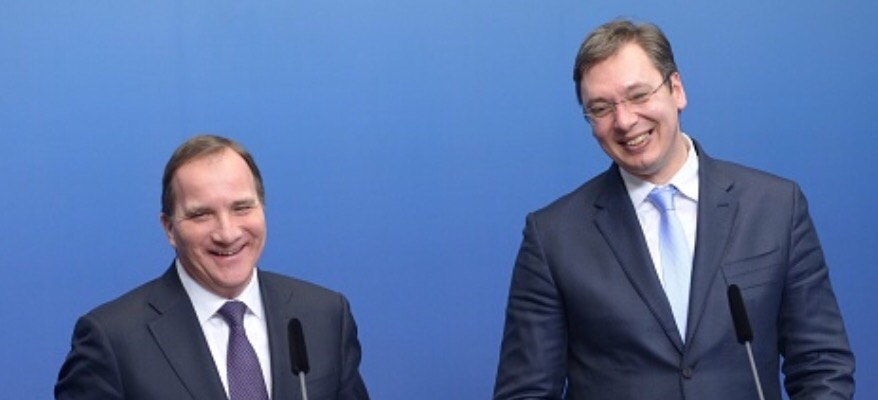
“I appreciate the progress that Serbia has made” Löfven stated to media.
PM Löfven had a long conversation with PM Vucic and the two leaders then held a joint press conference where they commented on the EU issue, the refugee crisis, trade cooperation, international organizations and cooperation and security.
“I am convinced that the path Serbia has chosen – the road to Europe – is the right one and a path that will provide stability and prosperity. Serbia has Sweden’s full support for EU membership and we will support the country throughout the journey”, said Stefan Löfven.
During his visit Löfven also met the Serbian President Tomislav Nikolic and representatives of the Swedish companies Astra Zeneka, Ericsson, Ikea and Securitas where they discussed opportunities for Swedish investments in the region.
“Serbia is implementing a modern environment that is important for the future development. There is a great interest on both sides to expand trade between our countries”, said Stefan Löfven in a comment.
It is time to register for the Customs Event of the year. Don’t miss it!
The Event will take place on October 31 to Nobember 2 in Jumeirah Towers in Dubai UAE.
GTDW 7.0 will host over 800 participants representing leading Governments, Customs Administrations plus private sector leaders across customs, compliance, trade, supply chain &logistics.
These are some of the participating sample organizations that have registred so far;
MIC Customs | DHL Express | Dow Chemical’s | PWC | Panalpina | IG Trading | Australia Customs | Mexico Customs | Al Tayer Group | General Motors | Fiat Chrysler | Volswagen Cars | JCB | Volvo Group | Nestle | Mondelez | Danzas | Adidas | KPMG | Gap | UPS Gulf | IKEA Distribution | Webb Fontanie | Crimson Logic | International Federation of AEO | Smiths Detection | Siemens | DUPONT | Department of Economic Development Dubai | American Business Council | INTERPOL | Majid Al Futtaim Ventures | Toyota | Walmart | Citibank | Baker Hughes | United States Agency for International Development (USAID) | United Nations Office On Drugs & Crime (UNODC) | Huawei Corporation | Department of Immigration & Border Services Australia | Korea Trade Investment Promotion Agency (KOTRA) | KGH Border Services | United Nations Conference of Trade & Development UNCTAD) | Nokia Networks | Federal Customs Authority UAE | National Association of Freight & Logistics | International Chamber of Commerce | GEOPOST/DODGROUP | International Road Union (IRU) | Secretariat of Economy, Mexico | Dell Corporation | Microsoft | Hewlett Packard | Korea Trade Network | Samsung | Hyundai | Coface | Ministry of Economy UAE | Bahrain Customs | Qatar Customs | Pakistan Customs | Ministry of Finance Pakistan | Ministry of Transport Jordan | Oman Customs | Sri Lanka Customs | Indonesia Customs | Ministry of Finance Indonesia | Malaysia Customs | South Africa Customs | Kenya Customs | Thomson Reuters | The Business year | The Wealth | Dubai Economic Council | RAK Customs | Dubai Customs | Fujairah Customs | UAQ Customs | Sharjah Customs | Shurooq | PWC | KPMG | Deloitte | UPS Global | Automobile Touring Club UAE | Bureau Veritas | Cotecna | CEVA Logistics | GAC | Access Bank | HSBC | India Customs | Angola Customs | Nigeria Customs | Bangladesh Customs | Nestle | Mondelez | Dentons | Nuctech | Sandler & Travis Trade Advisory Services | Diageo | British American Tobacco | Japan Tobacco | Jaguar Land Rover | General Administration of Customs China | Airbus Group | Boeing | Global Express Association (GEA) | World Bank | Dubai Chamber of Commerce | Abu Dhabi Chamber Of Commerce | DP World | Dubai World Customs | Aptean | WIPO | Nike | World Trade Organisation | ITC | Ministry of Transport Jordan
To register or if you want to know more visit http://www.kwglobaltrade.com/






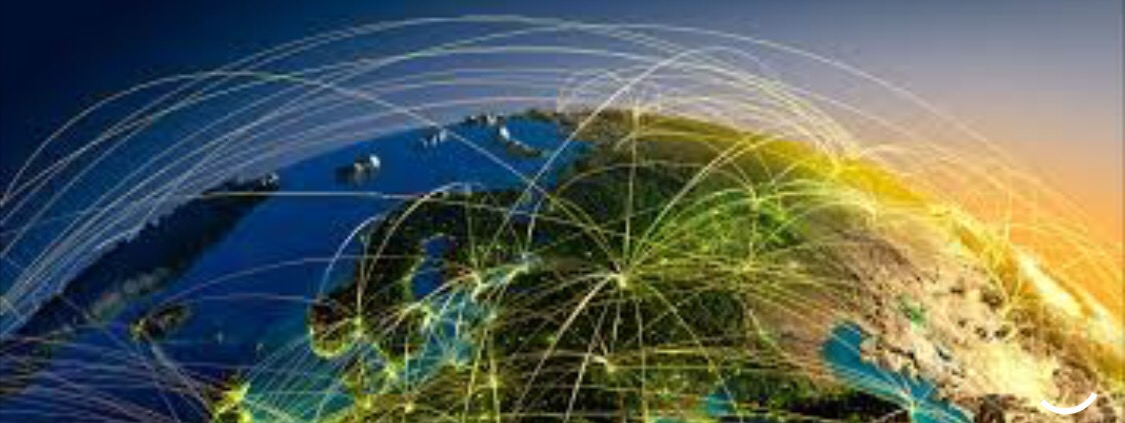
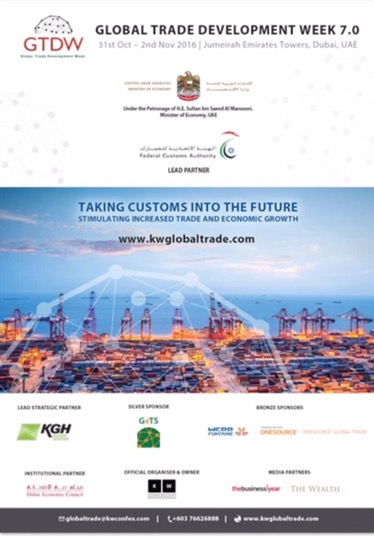
You must be logged in to post a comment.